Little Steps, Giant Leaps – Nurturing Tomorrow’s Leaders at MIS Early Years.


PRESCHOOL & KINDERGARTEN, PRIMARY SCHOOL AND SECONDARY SCHOOL.
PRESCHOOL A & B
Children from two years old – English EYFS curriculum in parallel with Montessori methodology.
KINDERGARTEN
Children from four years old – English EYFS curriculum in parallel with Montessori methodology, Kindergarten is slightly more formally structured and acts as a stepping stone to Primary school.
M.I.S. CURRICULAM
The M.I.S. curricula are designed to encourage each child to achieve their highest potential as well as to meet the English Curriculum standards. The focus is on the physical, psychological, intellectual and social development of the child.
M.I.S. PRESCHOOL & KINDERGARTEN M.I.S.
Offering Preschool & Kindergarten education for children aged between 2 and 5 years old. We use the Montessori educational method in parallel with the Early Years Foundation Stage of the English curriculum. Both approaches promote the key areas of care, learning and development. In the UK, Preschool is known as the Early Years Foundation Stage (EYFS), which covers education for children before they reach five. Meanwhile ‘Kindergarten’ here in Thailand, is equivalent to the ‘Reception Year’ in the U.K. which admits children who turn 5 during the academic year.
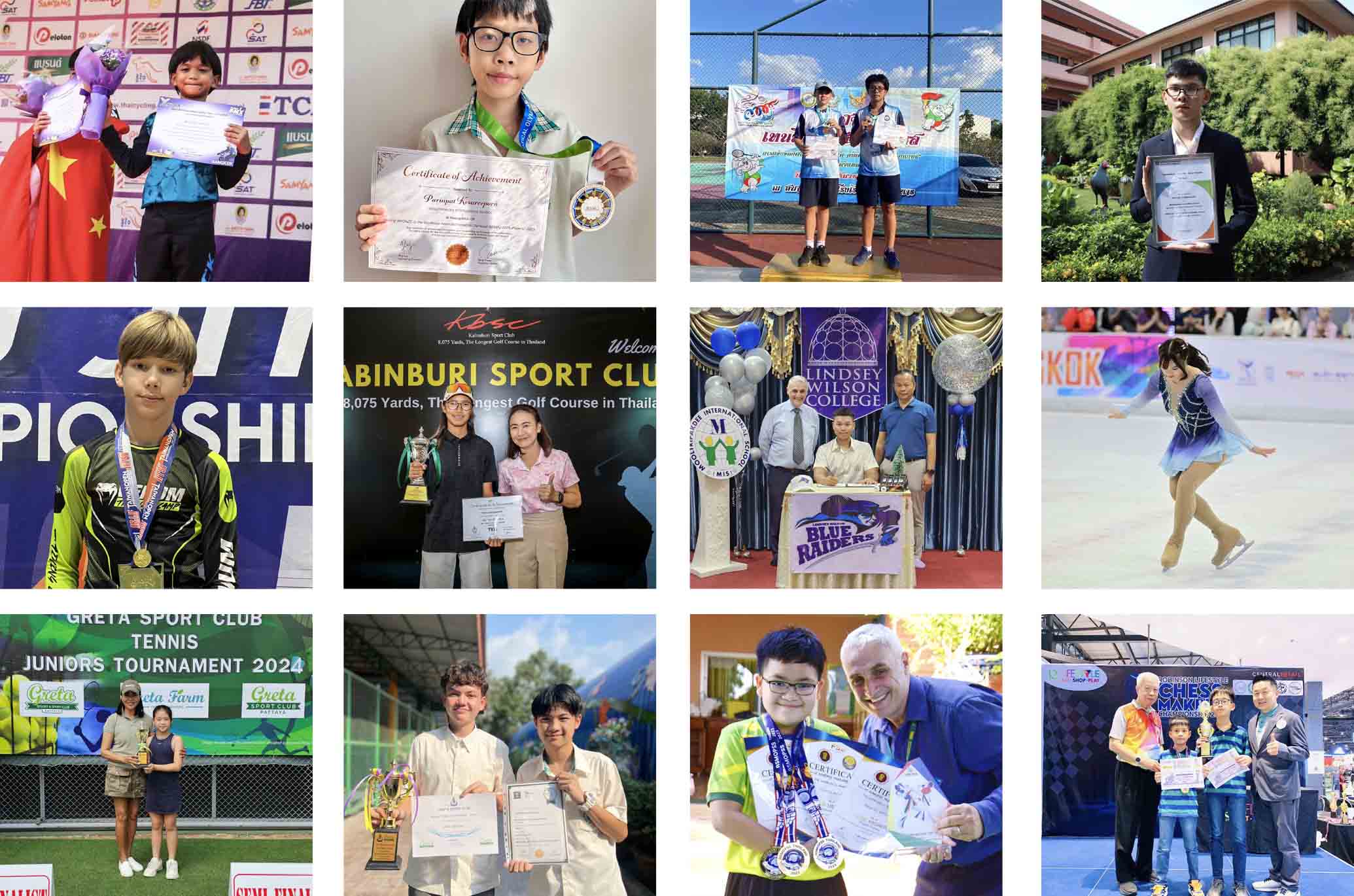

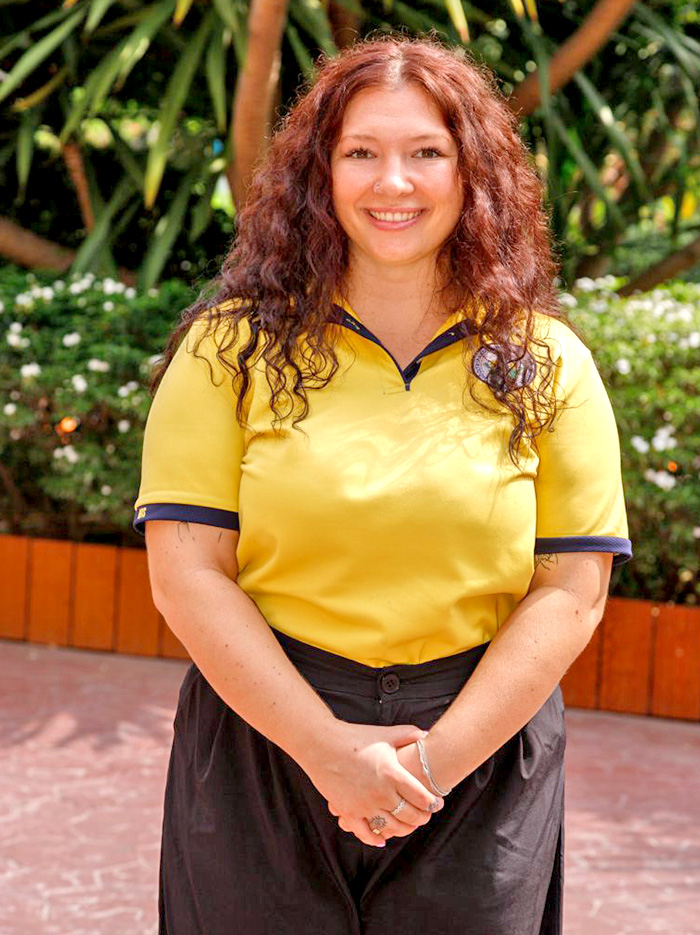

My name is Mercedes Slawter and I would like to extend a warm welcome from the MIS Early Years team to all prospective parents and their children.
Here at MIS, our Early Years team do everything they can to make sure children feel safe and happy within a warm and nurturing environment.
All our teachers have many years of experience working with young children and are passionate in delivering lessons and activities that allow each child to reach their full potential.
At MIS we follow the Early Years Foundation Stage Curriculum, although we also incorporate various Montessori methods and activities into our lessons as they are proven to lead to improved child growth and development.
Early Years education is much more than just preparation for primary school, it forms an essential part in each child’s social, emotional, cognitive and physical development. Furthermore, our team is able to get to know all our young students individually as they progress through Early Years and work hard to help them overcome the challenges they face as they familiarize themselves with the real world outside the family home. I am sure I speak for the whole Early Years Team that teaching these young children is such a rewarding experience and it’s great to see their personalities develop and to have a positive impact on their young lives. Happy children and happy teachers – what could be better!
Thank you for visiting our website and I look forward to welcoming you and your family to Early Years at MIS.
“GIVE YOUR CHILD A HEADSTART IN LIFE!”
At M.I.S., we firmly hold the belief that education extends beyond the academic syllabus. It’s crucial to offer children a wide array of experiences, activities, and concepts. Extra-curricular activities often serve as a foundation for character development and talent discovery. They provide a richer, more holistic learning environment where children can understand themselves and others better.
We strive to incorporate as many extra-curricular activities as possible without hindering academic progress. For instance, we motivate our teachers to organize field trips once every term.
In addition, some of our senior students participate in supporting local charities. We also encourage our teachers to arrange activities for students during one of their weekly lunch breaks. The children have a variety of activities to choose from, including sports like football (soccer) and basketball, and creative pursuits such as drama and computer club.
Beyond these voluntary activities, we invest significant effort in commemorating important events at M.I.S. These celebrations engage the entire school community and sometimes span an entire day, typically on the last day of the term. Events like Christmas, Songkran, and our International Day celebration bring each of our three terms to a grand conclusion.
The dedication and effort our staff put into these events are truly commendable, as seen in the fantastic sets, costumes, and choreography that characterize these occasions.
PRESCHOOL A&B CURRICULUM
“PLAY WITH A PURPOSE”
The EYFS curriculum is a comprehensive framework that guides the learning, development, and care of children from birth to 5 years old. It sets the standards for early years providers to ensure children learn and develop well while being kept healthy and safe. The curriculum prepares children with the knowledge and skills they need to start school, focusing on play and learning through play as essential components of early education. The EYFS framework emphasizes three prime areas of learning—Communication and Language, Physical Development, and Personal, Social, and Emotional Development —which are crucial for children’s success in all other areas of learning and life
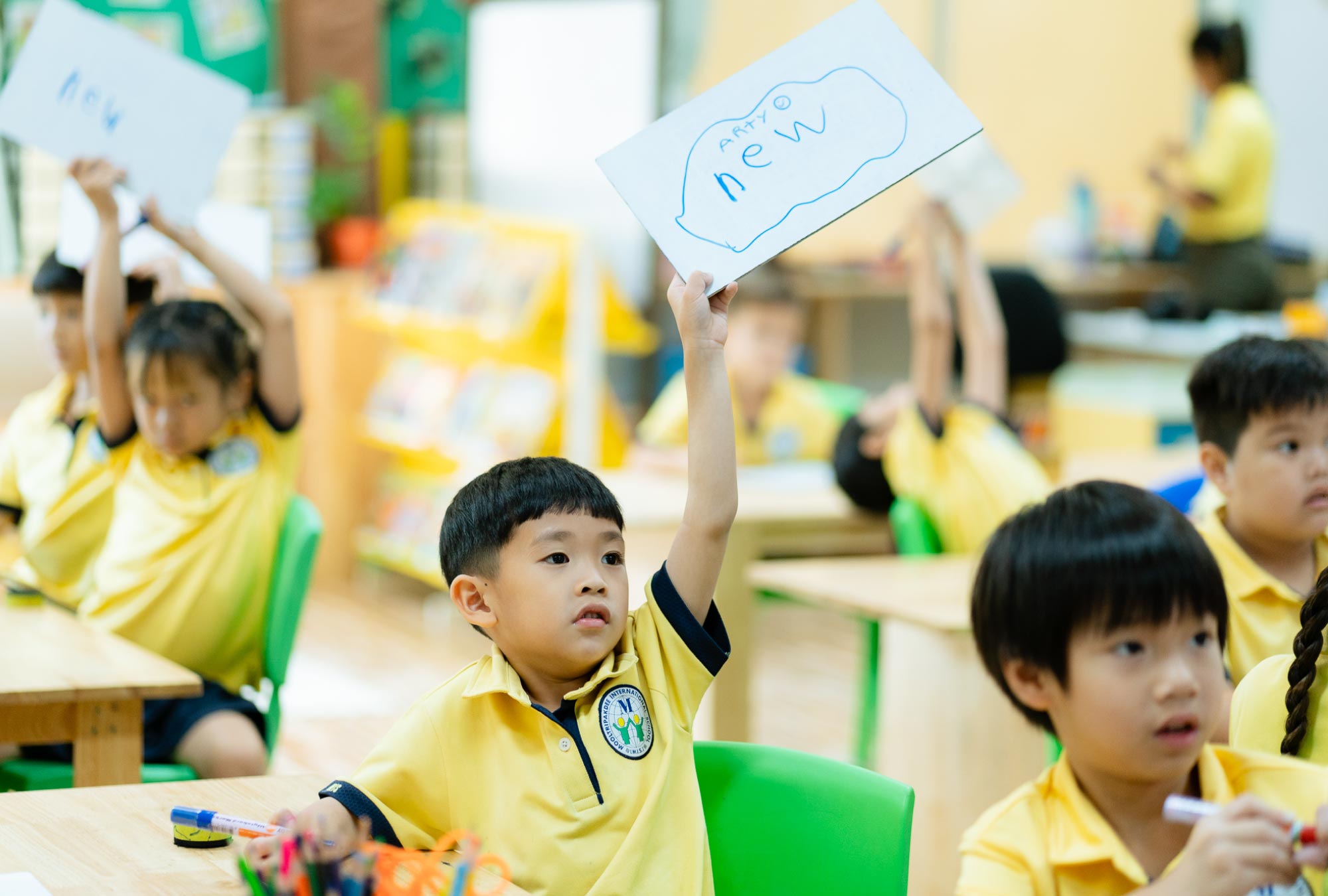

KINDERGARTEN CURRICULUM
“LITTLE LEARNERS,BIG EXPLORERS”
At M.I.S., our curriculum is rooted in the Early Years Foundation Stage (EYFS) framework, providing a smooth transition from pre-school to primary education. We integrate the best practices from Montessori and other influential curricula, focusing on a child-centered approach that values each student’s interests. Our Kindergarten continues with the EYFS, giving balanced attention to all seven areas of learning and maintaining a thematic, interest-led planning for classroom activities.


PERSONAL SOCIAL AND EMOTIONAL DEVELOPMENT
Develops a positive sense of self and confidence.
Builds positive relationships and respect for others.
Enhances social skills and self-regulation.
Encourages appropriate behavior in groups.
COMMUNICATION AND LANGUAGE
Provides opportunities to speak and listen in various situations.
Boosts confidence and skills in expressing themselves.
PHYSICAL DEVELOPMENT
Offers activities for children to be active and interactive.
Improves coordination, control, and movement.
LITERACY
Encourages reading and writing through listening and practice.
Introduces daily literacy sessions for structured learning.
Implements the phonics program “Song of Sound.”
Utilizes the Oxford Reading Tree reading scheme.
NUMERACY
Engages children with counting, calculations, and descriptions of shapes.
Uses stories, songs, and discussions to apply mathematical language.
UNDERSTANDING THE WORLD:
Encourages exploration and observation of the physical world.
Helps children learn about people, places, technology, and the environment.
Aims to make sense of the world and the child’s community.
EXPRESSIVE ARTS AND DESIGN:
Encourages children to engage with various media and materials.
Supports the sharing of thoughts and creative expression.
Aims to cultivate creativity, imagination, and sensory exploration.
At MIS, we are adept at creating a cooperative learning environment where children, parents, and teachers unite in a shared journey of discovery, nurturing a community where education is a collaborative and dynamic adventure. Together, we turn every day into an opportunity to learn, grow, and explore the wonders of the world around us.
Finally, at MIS we aim to develop a cooperative environment where children, parents and teachers can all learn together to make this journey one of true discovery.
“EDUCATING AND EMPOWERING THE NEXT GENERATION”
Using the Montessori Method, our Early Years classes adapt the teaching and learning for each child’s current developmental stage. Each child is treated as an individual and encouraged to work at the pace that is right for them.
In order to create the right learning environment, we provide Montessori materials that are especially designed for a child’s exploration and self–discovery, encouraging children to be active learners at every level.
In each area of learning there are expectations of attainment known as the early learning goals. The lessons and activities that are provided across the timetable serve to develop and consolidate the skills the children need to meet these learning goals across the seven areas of learning.
PLANTING SEEDS,NURTURING MINDS:WHERE LITTLE LEARNERS GROW!
From the moment children join Early Years we encourage them to explore their classroom environment, and beyond, using their senses (sight, touch, smell, and sometimes taste) to learn about the world around them.
These sensory activities are known to be an engaging and motivating way for children to explore the world; the use of touch, sometimes referred to as ‘messy play’ (when children can squeeze, squish and squash), plays an essential role as the students get to know the texture and feel of different materials and objects with their hands.
We also promote outdoor learning whenever possible as it is definitely the case that young children tend to flourish when given the chance to connect with the natural environment, and the Early Years outside play-area and surrounding greenery is the perfect location.


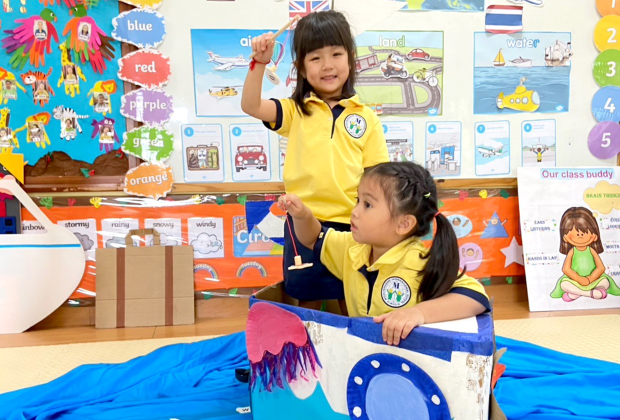

While making new friends and having fun are all part of life in Early Years children are also taking the first steps in learning the English language. From learning the phonetic sounds of the alphabet to writing their first letters children in Early Years are already making progress towards the blending of words and the subsequent reading and writing of sentences.
Circle Time with the homeroom teacher at the start of the day is probably the most important part of the timetable in Early Years as the children settle down while learning new concepts and generally take part in singing and educational games in order to practice their speaking and understanding of English.
After Circle Time the children are ready to take part in the rest of that day’s activities. The best singers and dancers are definitely in Early Years!
Making friends and learning new things in a safe and green environment – no wonder children are happy at MIS!
Let’s all learn and grow together!
NURTURING LITTLE MINDS TO BLOSSOM INTO TOMORROW’S BRIGHTEST STARS
At our school, we believe that the early years are a magical time of growth and exploration. Our Early Years Foundation Stage EYFS program is designed to nurture this crucial stage with a blend of care, creativity, and structured learning.
We welcome children as young as two, inviting them into an environment where play is the pathway to learning. Here, curiosity leads to discovery, and every experience is an opportunity to grow.
At Preschool A and B: Building Foundations for the Future As children transition to Kindergarten around the age of five, our focus shifts to laying the groundwork for formal education. We emphasize foundational academic skills, socialization, and a love for lifelong learning.
From the moment our little learners step through the doors, they are embraced by a world rich in opportunities to learn, play, and grow. Our dedicated educators guide them through activities that spark imagination and foster development, ensuring that each child feels valued and understood.
Our Commitment to Early Education We are committed to providing a warm, inclusive, and stimulating environment that respects the individuality of each child. By investing in quality early education, we are shaping confident, creative, and curious minds ready to take on the world.


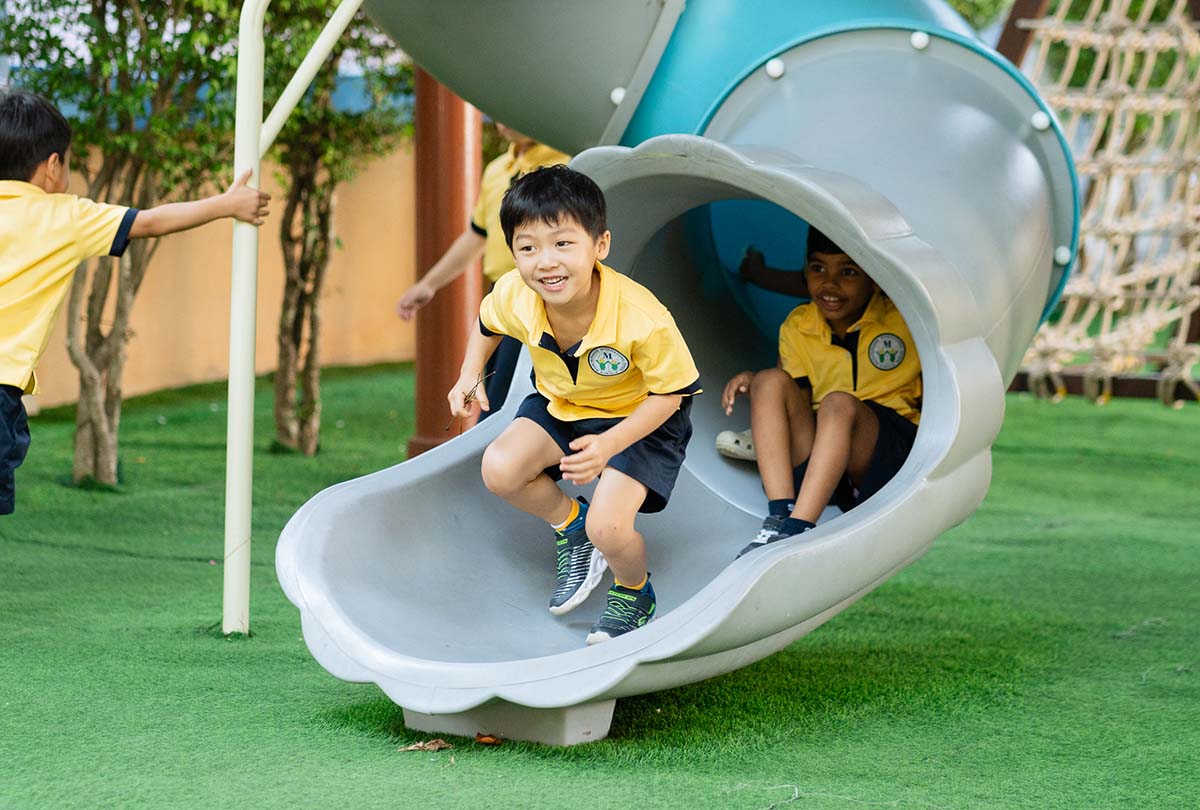



We believe that our MIS parents have an important role to play in the successful implementation of our Behavior Policy in fully supporting these objectives and aims.
Forging a close and cooperative relationship between teachers and parents is essential if our youngest students are going to experience our behavioral expectations as consistent and fair.
EXPLORING THE WORLD, ONE ADVENTURE AT A TIME
LEARNING BEYOND THE CLASSROOM
Primary students explore Thailand’s cultural treasures and landmarks, while secondary students venture to countries like China, broadening their global perspective. Each trip is a step towards becoming informed, worldly scholars.
The school buses enable MIS Early Years students to access many of the local attractions for a half day and these Educational School Trips are free of charge.
We understand that starting school is a very important first step for all children and here at MIS, we take great care to provide a welcoming and friendly environment for all our children. The Early Years Teaching Staff are experienced in ensuring the transition to school goes smoothly and children are quickly integrated into their respective classes.
The school has a new CCTV system installed around the school and nobody is allowed on site without an identification lanyard.